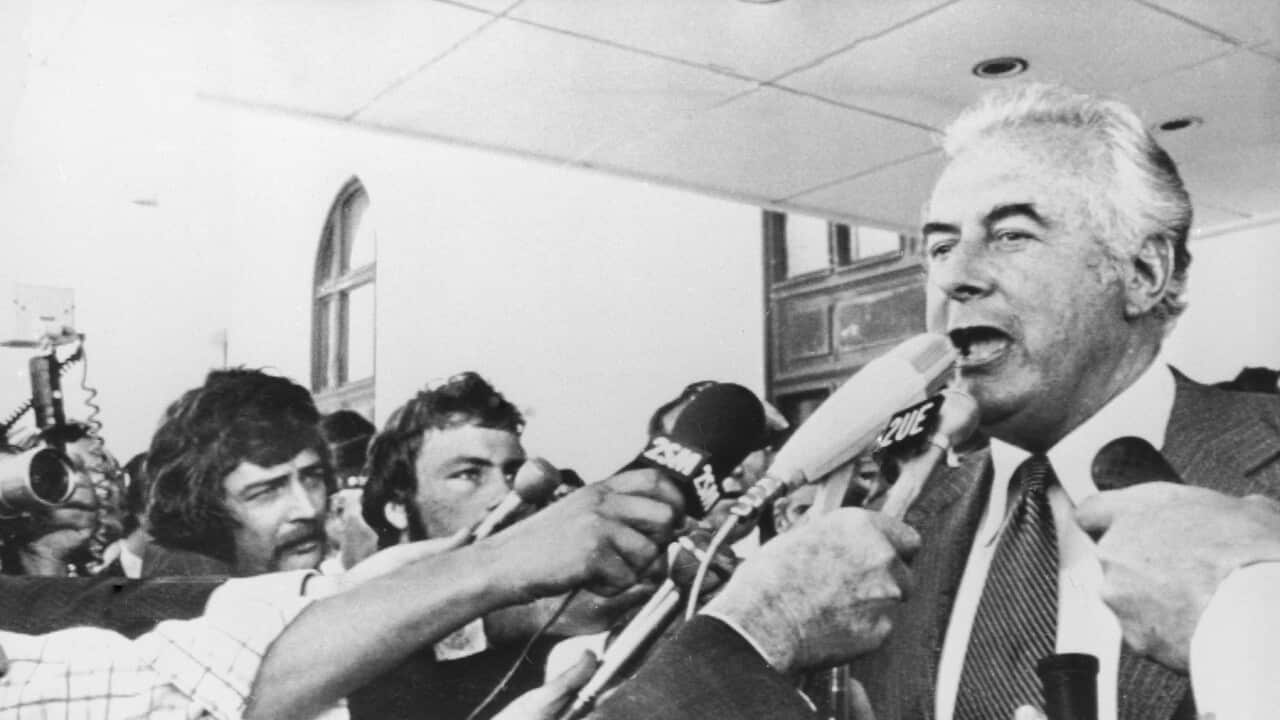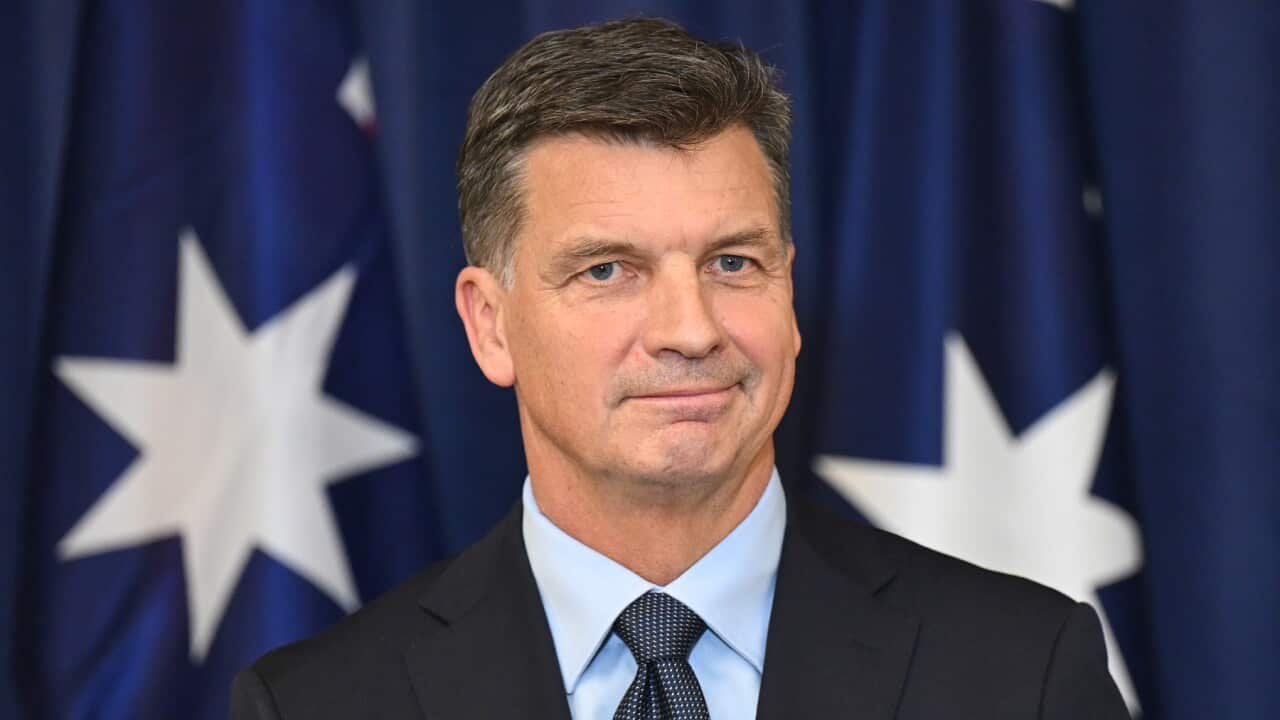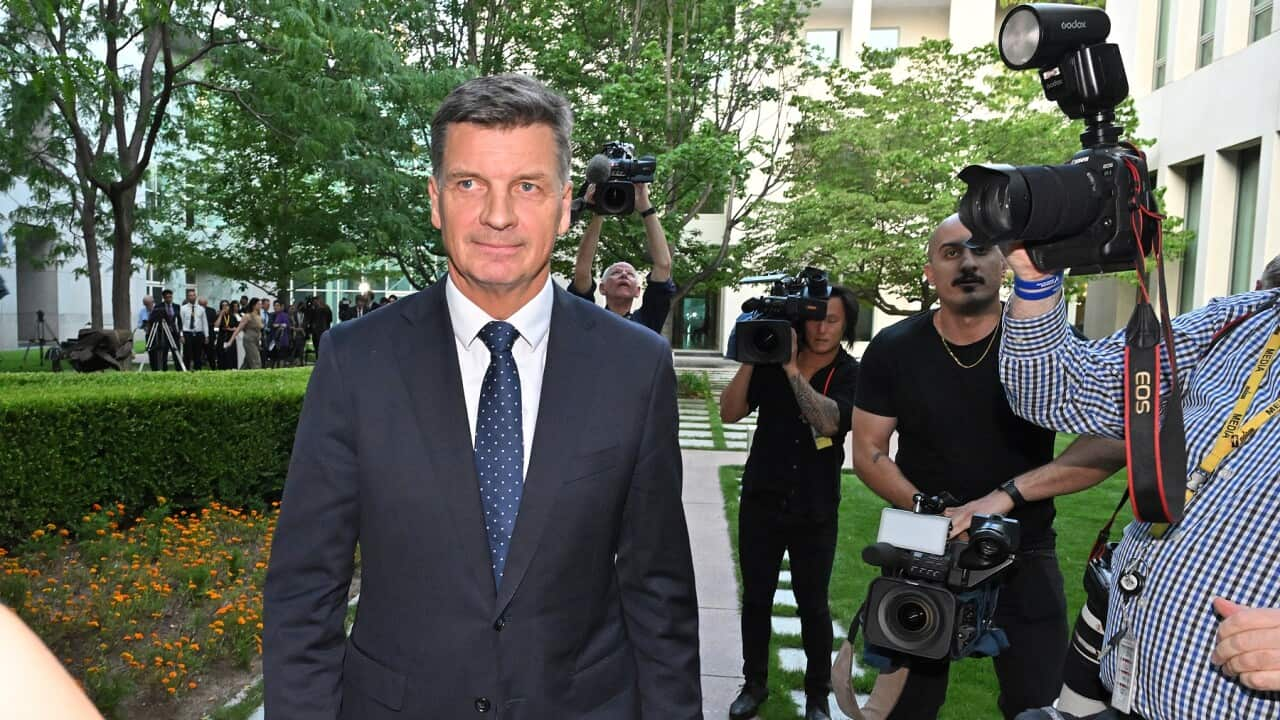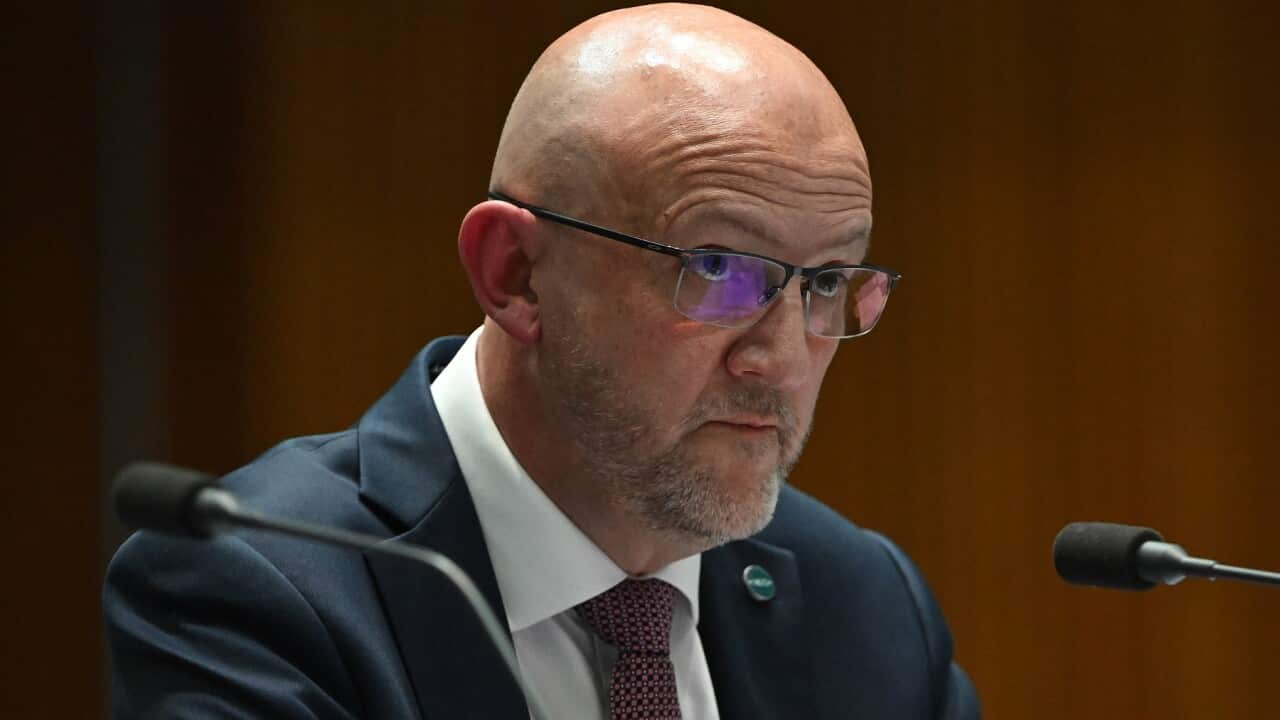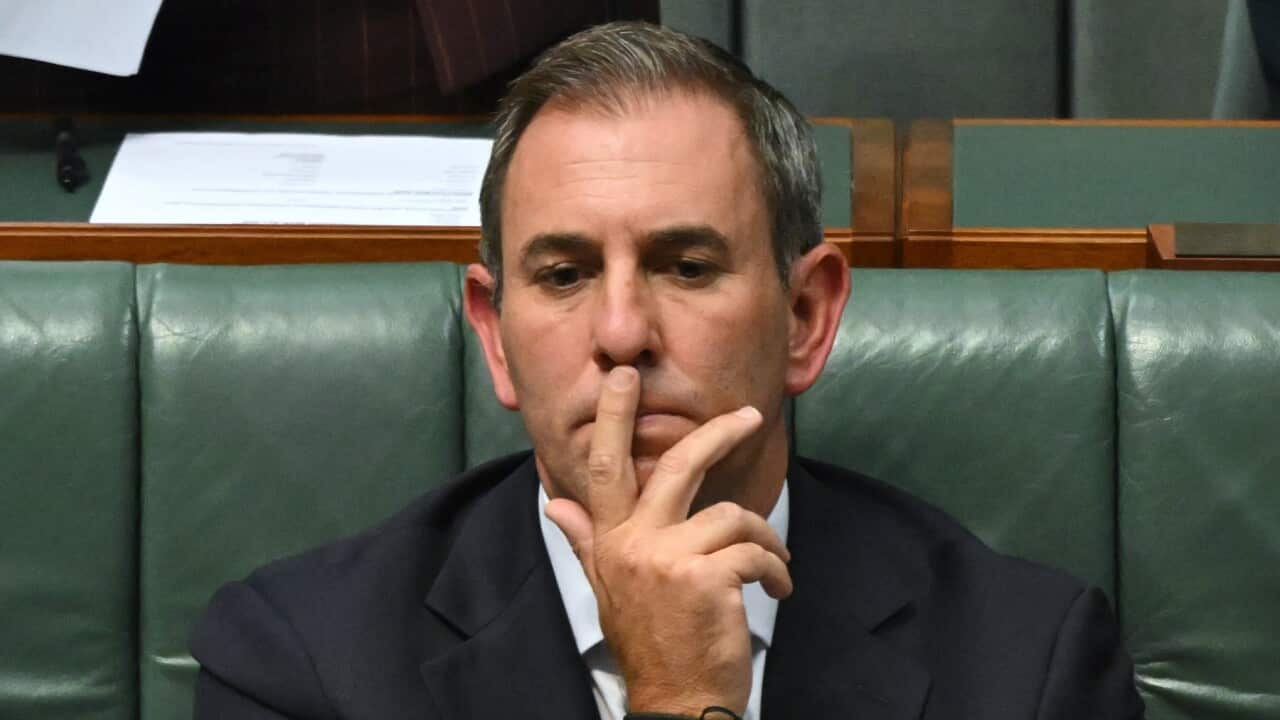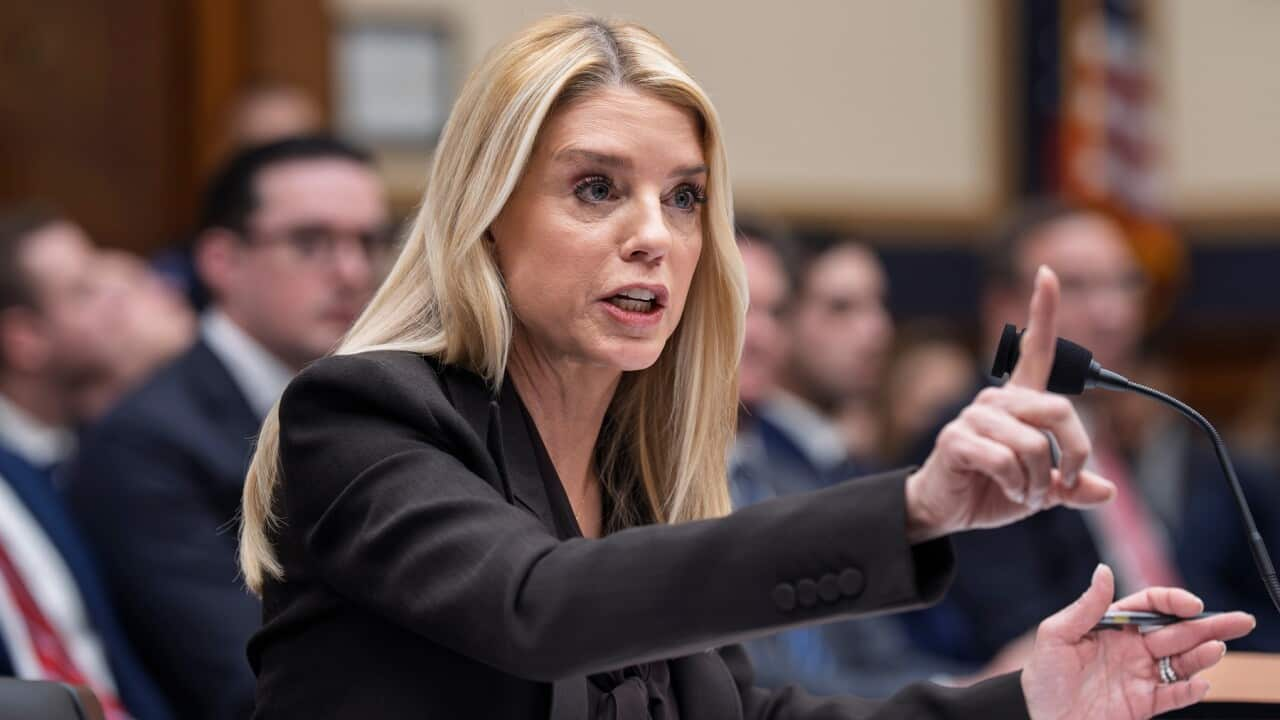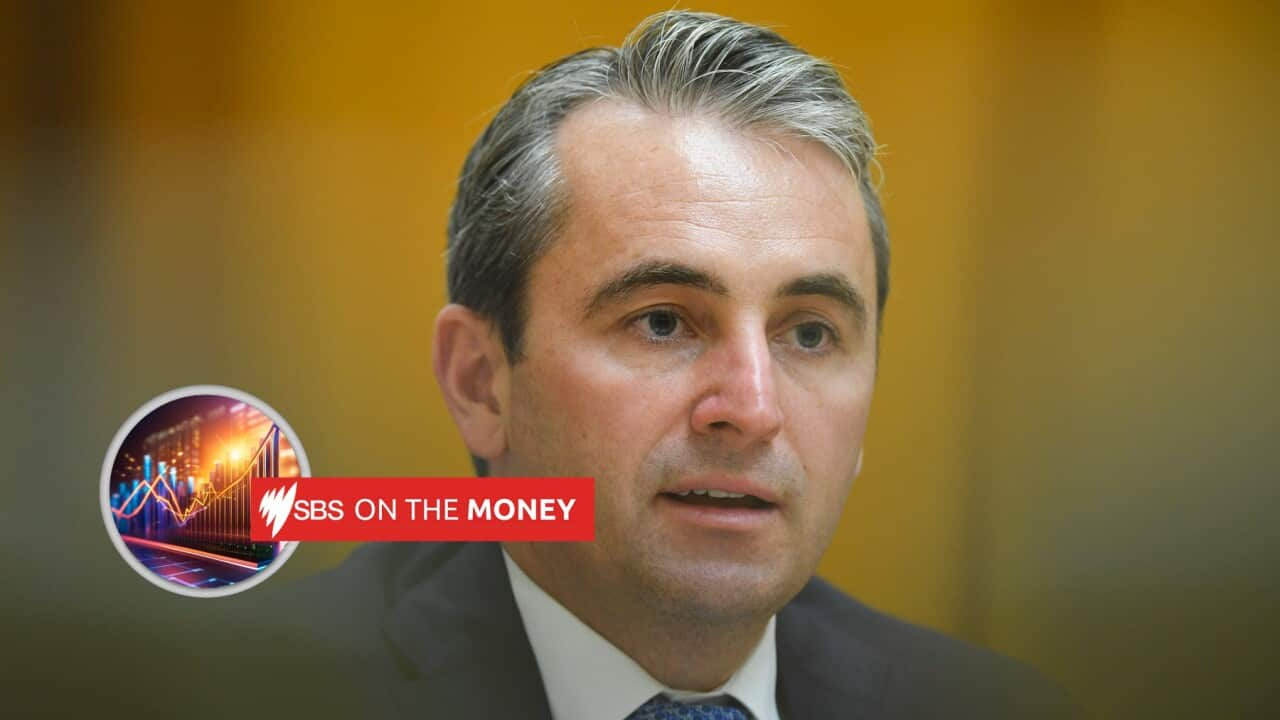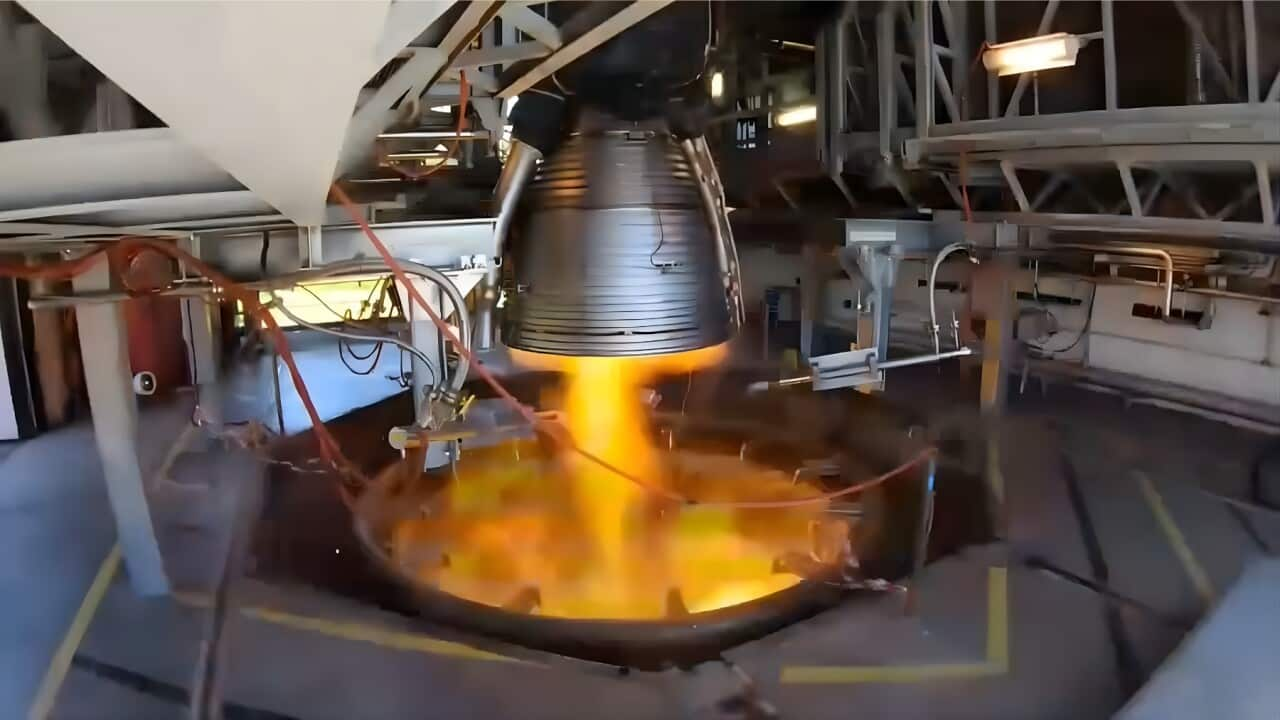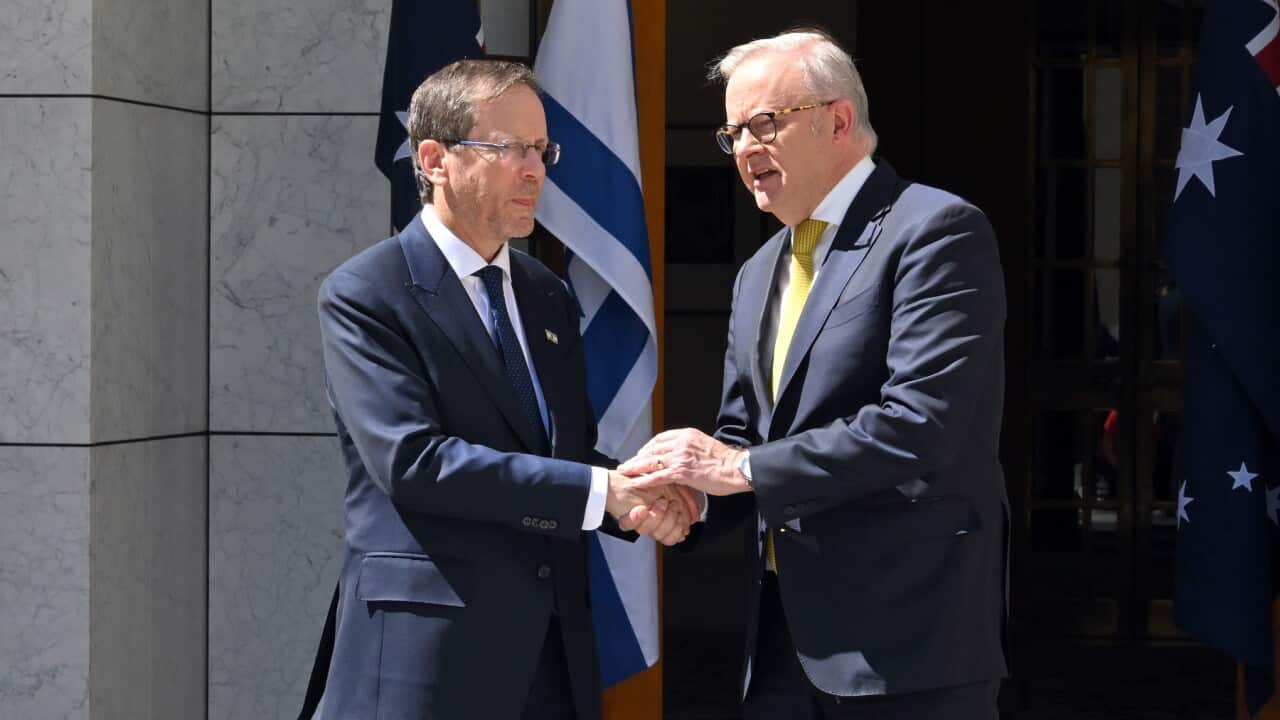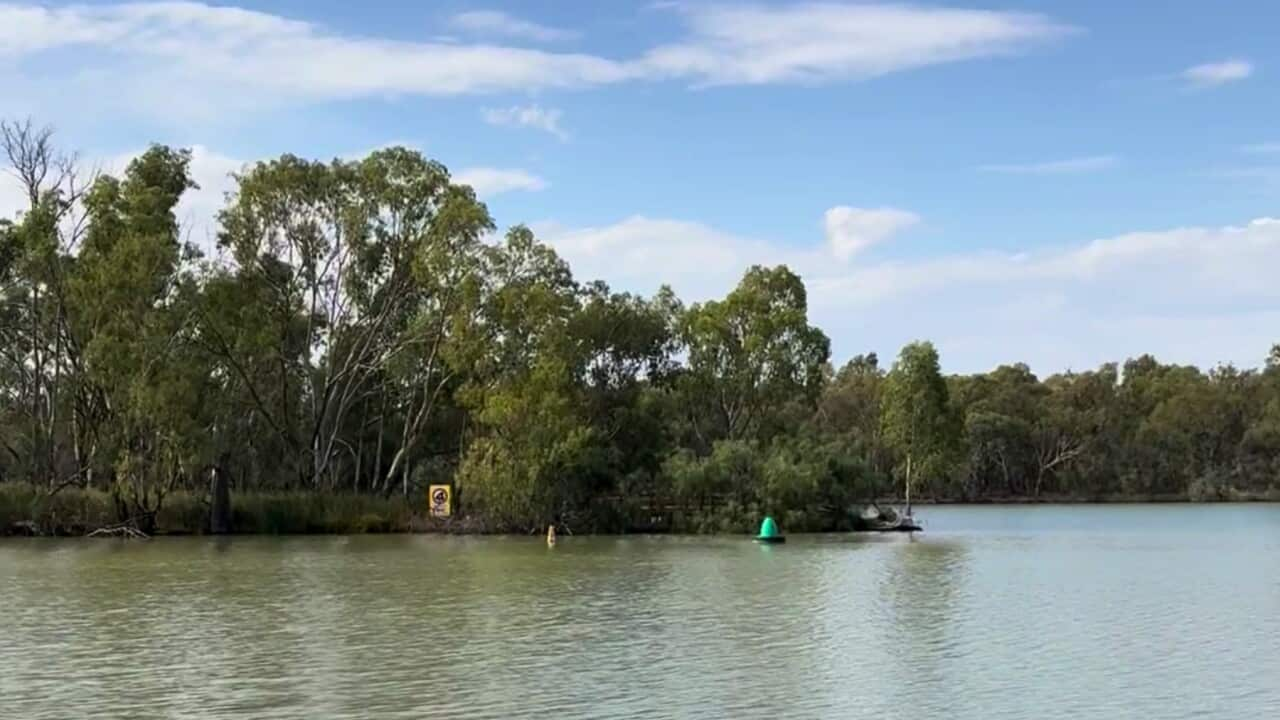Listen to Australian and world news and follow trending topics with SBS News Podcasts.
TRANSCRIPT:
"Now therefore I, Sir John Robert Kerr, the Governor General of Australia, do by this my Proclamation dissolve the Senate and the House of Representatives."
That was Australia's 18th governor general, John Kerr, handing down the news that Australian prime minister Gough Whitlam had been sacked.
In Australia's most dramatic constitutional crisis, Whitlam was dismissed on November 11, 1975, 50 years ago.
After the shocking dismissal, Gough Whitlam stood on the steps of parliament house and delivered his own iconic verdict.
"Well may we say, ‘God save the Queen’, because nothing will save the governor-general."
Gough Whitlam remains the only prime minister ever dismissed by the Crown’s representative in Australia.
To mark the occasion, Prime Minister Anthony Albanese delivered a condemnatory speech.
"Make no mistake, November the 11th, 1975 was not a constitutional crisis. It was a partisan political ambush. There was no real precedent and no legitimate pretext. The (Coalition) Opposition orchestrated a parliamentary gridlock over the budget and then secretly prevailed upon the Governor General to break it by sacking the Prime Minister. Sir John Kerr justified his actions on the basis of incorrect advice from Chief Justice Barwick, improperly given."
Mr Albanese says the dismissal sacrificed conventions and institutions in the pursuit of power.
"In truth, the Opposition had preyed upon John Kerr's desire to be at the centre of events, and they had cultivated his paranoia, his fear that Whitlam was planning to replace him."
At an event in Old Parliament House, Anthony Albanese described Gough Whitlam as an inspiration, a once-in-a-generation leader who raised expectations about what a government could deliver.
"This building was where the first iteration of universal health care through Medibank became law, where the renewal of our suburbs and regions was put at the heart of national policy. This was where the first bricks were removed from the tariff wall, the first steps taken to land rights, where a new generation of Australians were given access to the life-changing opportunity of a university education, where the White Australia Policy was finally abolished, diplomatic relations with China first established, the Racial Discrimination Act passed. The family court and single mothers payment created and so much, much more."
However, like his conservative predecessor Billy McMahon, Gough Whitlam had found himself dealing with an obstructionist Senate, a global economic crisis and powerful vested interests.
By October 14th, 1975, three years after it was elected, the Whitlam Labor government had run out of money.
Treasurer Rex Connor's secret attempts to secure massive overseas loans via a Pakistani commodities trader led to the Loans Affair, putting the government in deep trouble and leading to Mr Connor's resignation.
What happened next was known to some as a Senate coup d'état.
Two days later on October 16th, Opposition Leader Malcolm Fraser cited the scandal as justification for breaking constitutional convention, leading the Opposition-controlled Senate to block the government's supply bill.
Governor-General John Kerr argued that a Prime Minister who cannot obtain Supply must either hold a general election or resign.
Then came the deadlock.
Mr Whitlam refused to do either, intending to "govern on" and wait for the Opposition to back down.
Sir John Kerr used his constitutional reserve powers to dismiss Prime Minister Gough Whitlam.
Political journalist Niki Savva, who was there on the day, has told the ABC Kerr's actions were underhanded.
"What made it so much worse was that he deceived him...he did not forewarn him that it this a possibility that it was something he was considering."
This echoes what Professor Jenny Hocking found many years later in the so-called "palace letters" between John Kerr and the Crown.
The letters confirmed the Queen knew by September 1975 that Sir John was actively considering dismissing the Whitlam government, and had later dismissed Mr Whitlam without warning him, a major breach of constitutional convention.
Professor Hocking won a landmark legal campaign to release the secret letters in 2020.
"They just hadn't been examined, barely at all, and they were some really significant holdings that I think completely unravelled the story about the Dismissal that we've been told before."
But the question of foreign interference doesn't end there.
After being elected in 1972, Mr Whitlam broke with tradition, critiquing Australia's allegiance to the United States.
Critical of the carpet bombing of Hanoi and Haiphong, and critical of Pine Gap, the C-I-A-run Defence base near Alice Springs, he led conversations around independent foreign policy.
Former Secretary of the Department of the Prime Minister and Cabinet of Australia John Menadue has told SBS Whitlam's position really upset the Americans, who called Australians "peaceniks," and "unreliable allies."
"Just before Nixon was ejected from office, he commissioned the State Department and Defense Department in a special report on what their relationship should be with Australia, and it was a pretty brutal assessment. It was recently published in 2014 and in it, that memorandum said that they would seek to lessen ties with Australia, and if that didn't work, they would then propose setting the stage for an opposition victory in Australia. This was in 1974 setting the stage for an opposition victory in Australia.”
Following an inflammatory Whitlam speech accusing the CIA of financing the National Country Party led by Doug Anthony, US Secretary of state Henry Kissinger sent Australia a threat.
"Kissinger sends a protest to the American ambassador about these comments by Whitlam, and that was followed with the authorisation by Kissinger of a démarche—that's a protest to the Australian Government - sent to ASIO in Australia, and threatening that if this continued, that they would seriously consider breaking their arrangements with us on defence and other policies."
This démarche was sent three days before the Dismissal.
"I have no doubt it played a major factor in the decision of Kerr finally to sack Prime Minister Whitlam."
Mr Menadue says Sir John was worried Gough Whitlam would sack him too, after dismissing the head of domestic spy agency ASIS Bill Robertson.
"I think this was the final element that gave Kerr the reason, in his view, to push Gough Whitlam over the cliff."
In Gough Whitlam's book, 'The Truth of the Matter', he cites former US President Jimmy Carter who apologised in 1977 for US interference in Australian domestic politics.
Mr Whitlam later conveyed the substance of this apology to the Australian House of Representatives, where it is recorded in Hansard.
"The Democratic Party and the ALP were fraternal parties. President Carter respected the deeply democratic rights of the allies of the United States. The US administration would never again interfere in the domestic political processes of Australia. It would work with whatever government the people of Australia elect."
Mr Albanese has announced that a statue of Mr Whitlam will be placed outside Old Parliament House.
